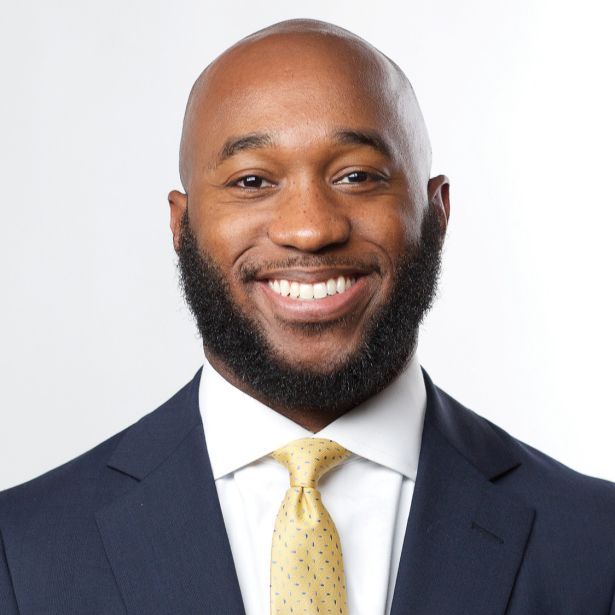
Aaron Hancock, 30
Vice president at Artemis Real Estate Partners

Aaron Hancock knew early on he wanted a career in commercial real estate finance. After a standout varsity run on the Cornell football team, Hancock worked in real estate banking at Morgan Stanley before moving to Artemis Real Estate Partners in 2016 out of a sheer desire to work for a smaller firm that offered a true career trajectory.
“We were diversified in product types, diversified across the country, and diversified in where we invested in the capital stack,” he explained. “So I got to see pretty much every asset class in acquisition and development, as well as equity and structured debt investments.”
He spent three years at Artemis, specializing largely in industrial transactions and middle-market investments, before rejoining the firm 18 months ago to begin working closely with C-suite leadership. Hancock works with co-founder and CEO Deb Harmon and underwrites new business strategies for various core funds. “Part of what’s kept me here so long is there’s a personal alignment with the ethos of the organization and how diversity is embedded in it,” he said. “And I love the fact that I work for a woman-owned, woman-
led firm. That just resonates with me personally.”
Today, Hancock serves as co-portfolio manager for a $500 million investment vehicle focused on deals with diverse operating partners. Artemis’ bread and butter is joint venture investments, so this vehicle allows those partners who are largely women- or minority-owned to join Artemis in larger transactions that are harder to break into. “We believe there is a significant number of diverse managers out there who are looking to institutionalize,” said Hancock. “So a big part of that is providing the capital for the transactions, but it’s also institutionalizing their processes, getting them in front of our clients, so they can grow that base of their network.”
Hancock also leads the junior analyst team at Artemis, where he acts as a mentor and imparts the tricks of the trade that he found were lacking when he began in CRE finance.
“When I was transitioning from investment banking to private equity, there wasn’t a lot of training out there to help you learn the job,” he said. “It’s not just teaching them how to build a model or how to write memos or how to think about cap rates. It’s also teaching them how to be professionals.”



